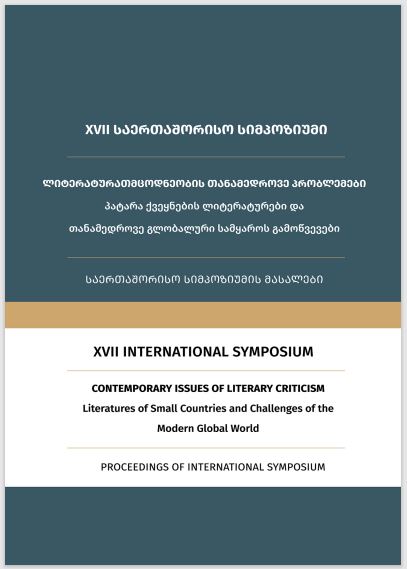Anti-Empire: A Visual Reconstruction of the World by Lithuanian Thinkers in the Spirit of Minor Nations Liberation
Опубликован 2024-12-20
Ключевые слова
- alternative,
- space,
- freedom,
- self,
- sacrality
- minor nations,
- globality,
- Lithuanian visionaries,
- Himalaya,
- Jewish tombstones,
- Ukraine ...Больше
Аннотация
Lithuania lived through the “stopped” time during the Soviet occupation as a special resistance experience that led to profound transformations and a global wave of phenomena of national revivals. This gave new impulses to the knowledge of responsibility for other nations, to inspire their freedom and to experience the discoveries of an alternative global, sacred space. Lithuanian thinkers — visionaries, creators and photographers capturing borderline reality are like the Franciscan monk sculptor Vilius Orvidas (1952–
1992), who, during the Soviet era, transformed the inner space of his homestead park into a unique juxtaposition of sacredness, nature and the absurdity of totalitarianism. It became the anti-empire of reality transformations, the “battlefield” of the liberation of ideas, overcoming the “enslaved mind” with silence. The freelance photographer and traveller Paulius Normantas (1948–2017) sensed his vocation through the pain of the marginal situations of the vanishing minor nations scattered on the edges of the world’s empires. In his being, Paulius united the peoples of Lithuania and the Himalayas, thereby expressing the responsibility for the freedom of the enslaved peoples, which lies in the Lithuanian genetic code. Photographer, publicist, and translator Juozas Valiušaitis (*1964) discovered his “resurrection from oblivion” mission through Jewish tombstones left for destruction in Vilnius, embedded in the pavement or overgrown with grass in the woods. After the beginning of Maidan (2004, 2013–2014), Juozas’ empathy for the Ukrainian nation, walking to freedom, became the decisive slogan of his life and his vision in photographs, creating the miracle of the moment, the breakthrough of freedom.

